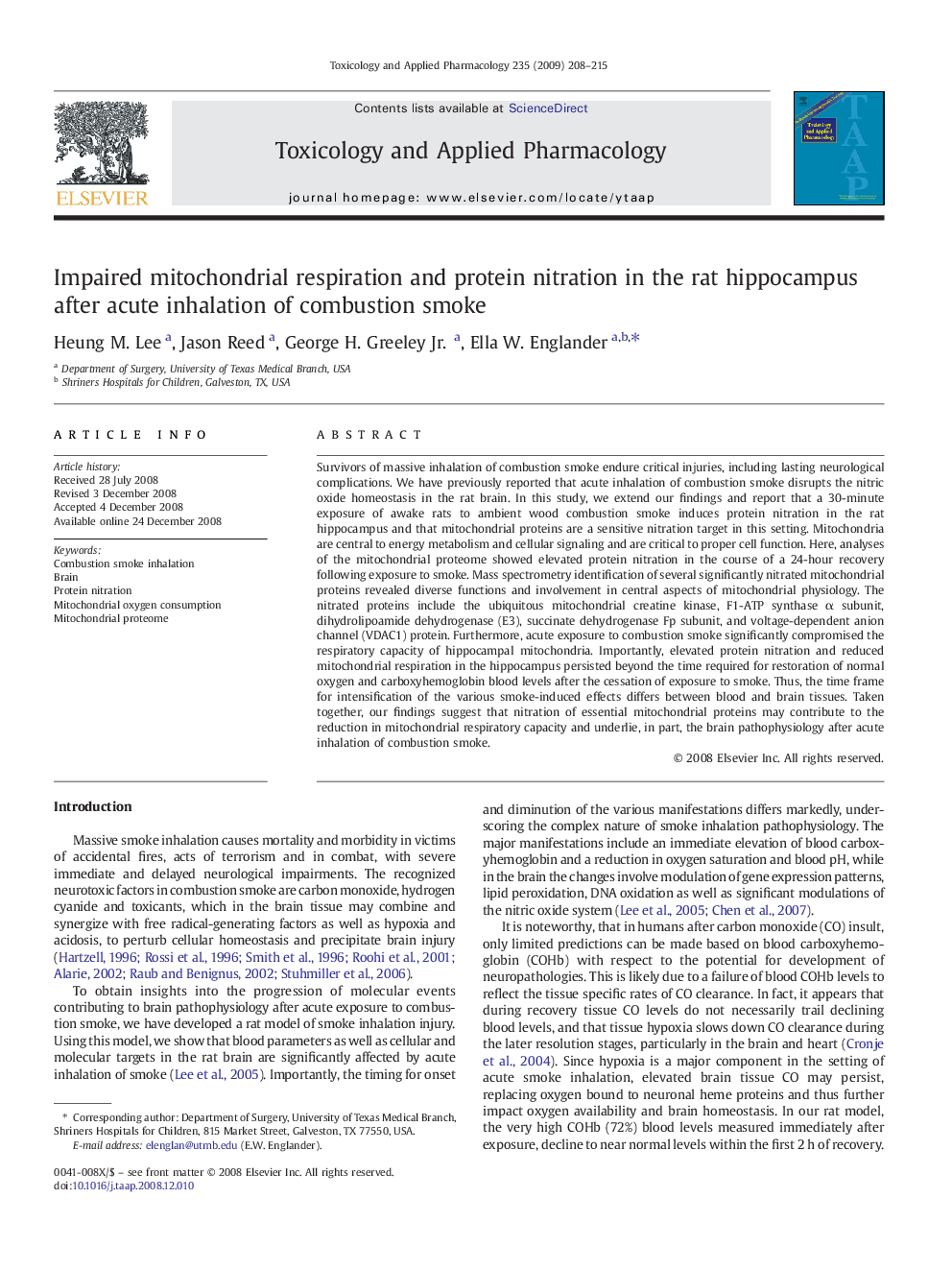| Article ID | Journal | Published Year | Pages | File Type |
|---|---|---|---|---|
| 2570077 | Toxicology and Applied Pharmacology | 2009 | 8 Pages |
Abstract
Survivors of massive inhalation of combustion smoke endure critical injuries, including lasting neurological complications. We have previously reported that acute inhalation of combustion smoke disrupts the nitric oxide homeostasis in the rat brain. In this study, we extend our findings and report that a 30-minute exposure of awake rats to ambient wood combustion smoke induces protein nitration in the rat hippocampus and that mitochondrial proteins are a sensitive nitration target in this setting. Mitochondria are central to energy metabolism and cellular signaling and are critical to proper cell function. Here, analyses of the mitochondrial proteome showed elevated protein nitration in the course of a 24-hour recovery following exposure to smoke. Mass spectrometry identification of several significantly nitrated mitochondrial proteins revealed diverse functions and involvement in central aspects of mitochondrial physiology. The nitrated proteins include the ubiquitous mitochondrial creatine kinase, F1-ATP synthase α subunit, dihydrolipoamide dehydrogenase (E3), succinate dehydrogenase Fp subunit, and voltage-dependent anion channel (VDAC1) protein. Furthermore, acute exposure to combustion smoke significantly compromised the respiratory capacity of hippocampal mitochondria. Importantly, elevated protein nitration and reduced mitochondrial respiration in the hippocampus persisted beyond the time required for restoration of normal oxygen and carboxyhemoglobin blood levels after the cessation of exposure to smoke. Thus, the time frame for intensification of the various smoke-induced effects differs between blood and brain tissues. Taken together, our findings suggest that nitration of essential mitochondrial proteins may contribute to the reduction in mitochondrial respiratory capacity and underlie, in part, the brain pathophysiology after acute inhalation of combustion smoke.
Related Topics
Life Sciences
Environmental Science
Health, Toxicology and Mutagenesis
Authors
Heung M. Lee, Jason Reed, George H. Jr., Ella W. Englander,
